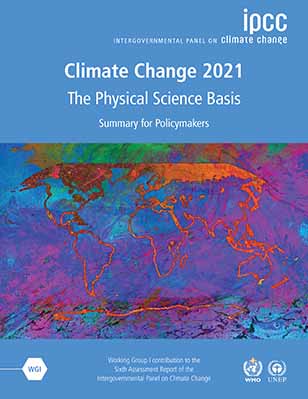 ‘It is unequivocal that human influence has warmed the atmosphere, ocean and land.
‘It is unequivocal that human influence has warmed the atmosphere, ocean and land.
‘Global surface temperature will continue to increase until at least the mid-century under all emissions scenarios considered. Global warming of 1.5 degrees and 2 degrees will be exceeded during the 21st century unless deep reductions in carbon dioxide and other greenhouse gas emissions occur in the coming decades.’
When the Intergovernmental Panel on Climate Change (IPCC) report for this year dropped, and these were the headline statements, it was difficult to have hope in response to the global ecological crisis.
Greta Thunberg, (pictured) a teenaged climate activist says – ‘We must change almost everything in our current societies. The bigger your carbon footprint – the bigger your moral duty. The bigger your platform – the bigger your responsibility. Adults keep saying “we owe it to the young people to give them hope” but I don’t want your hope. I don’t want you to be hopeful. I want you to panic. I want you to feel the fear I feel every day. And then I want you to act. I want you to act as you would in a crisis. I want you to act as if your house is on fire. Because it is.’ When you listen to Greta, you can’t help but feel very un-hopeful. Despair might be a better word.
Climate anxiety
For many young people especially, ‘climate anxiety’ or ‘eco-anxiety’ and ‘eco-depression’ are becoming more and more common.
The Australian Medical Association recently declared that climate change was a health emergency, saying it was the greatest threat to global health (physical and mental) in the 21st century. From the trauma of extreme weather events and displacement from homes, people are at much higher risks of mental illness. Not to mention the overall existential dread.
Parents are feeling the pressure to instil values in their children to help care for creation. Many do everything that they can to reduce their carbon footprint to help their children understand how to care for creation, but also to be proactive in addressing the issue and give their children hope.
A few years ago, I came across the work of a theologian, Fr Joshtrom Kureethadam who talked about ‘virtues’ that are discussed in the Pope’s encyclical on Care for Our Common Home – Laudato si’. [Rev Dr Kureethadam is coordinator of Ecology and Creation at the Vatican Dicastery for Promoting Integral Human Development – known as the Pope’s right-hand man on climate change.]
While reading Fr Kureethadam’s work I thought, ‘wow, what a great set of virtues to teach to young people’; and the article itself made me feel more hopeful. If we could develop these virtues, while addressing the issue of global warming, then we could start to feel more hopeful about the crisis.
The seven virtues in the article were:
- Praise – Learn to praise God and love him
- Gratitude – Be grateful for what we have and the gifts of God’s creation
- Care – Care for the environment
- Justice – Be an agent to justice in the world because the world's poorest are the most severely affected by climate change
- Work – Contribute to society and its flourishing through work, but also help the environment through work
- Sobriety – Be sober in our consumerism, only using what we need, no more, no less
- Humility – Understand that we as humans are not gods on this earth
 A better place
A better place
If we can praise God and be grateful every day, surely the world would become a better place. If we can truly learn to care for creation and the poor through justice and equality, surely the world would become a better place.
If we could all have enough for our own human flourishing and share our gifts with others through work, surely the world would become a better place. And if we can come to understand our human limitations and stop seeing the world as an object to plunder for riches, surely the world would be a better place.
To develop these virtues, there are a few things that we can do.
- Pray to our Lord and praise his name
- Pray before meals and give thanks for the gifts of creation
- Pray while we take action to help care for the environment when we recycle, use solar power or garden
- Pray for those suffering in poverty and give what we can to help them
- Pray while we work for the strength to continue to share our gifts
- Pray that we have enough in our lives for our own survival and to turn away from consumerism
- Pray that we become humble in our actions
Through these prayers, we may be able to find the hope that we so desperately need in this time.